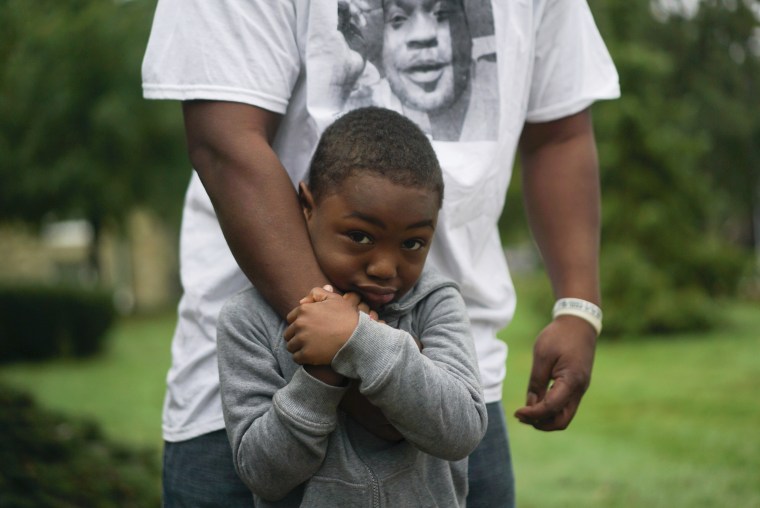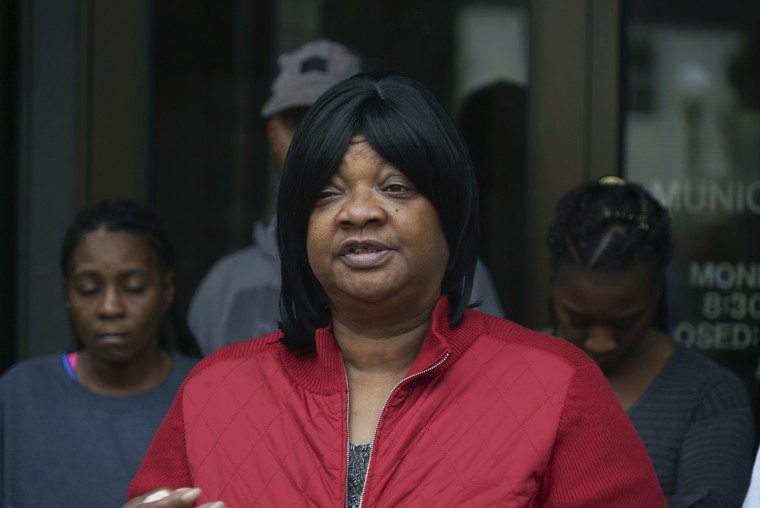EUCLID, Ohio — The family of an unarmed black man fatally shot by a white policeman has filed a federal civil rights lawsuit.
The lawsuit, which was filed Monday, alleges that Euclid is responsible for practices that led to Officer Matthew Rhodes shooting and killing 23-year-old Luke Stewart in March.
“They tortured my baby,” said Stewart’s mother, Mary Stewart. “Why? Why did he just take it upon himself just to feel that he could go around killing people like that? It’s just so unfair, it’s unreal. I can’t believe it.”
Rhodes was responding to a report of a suspicious vehicle in Euclid, in suburban Cleveland, when he encountered Stewart sleeping behind the wheel, startling him awake. Rhodes said he opened the passenger door and reached into Stewart’s car to try to push him out when Stewart turned the ignition and started to drive away, prompting Rhodes to jump in. Rhodes said he struggled with Stewart to control the moving car and then shot Stewart because he feared Stewart would crash the car.

Sarah Gelsomino, an attorney representing Stewart’s family, called Rhodes’ actions “incredibly ill-advised and unreasonable.”
“There was no reason to jump in that car and quickly progress to the deadly use of force,” Gelsomino said. “These officers created any kind of situation which they then later complain caused them fear.”
The lawsuit comes as activists have been criticizing Euclid police for an arrest in which a white officer with a history of disciplinary issues was caught on video punching a black man more than a dozen times in an August traffic stop.
Related: A Video Again Casts Doubt on Police Shooting of a Black Man
Stewart’s shooting and the August arrest have prompted other people to step forward to complain about police abuse, inflaming racial tensions in the city, which is about 46 percent white and 54 percent black, according to the 2010 census, the most recent figures available.
“This police department has completely and utterly failed to supervise their officers, to discipline their officers, to train their officers appropriately,” Gelsomino said. “They’re condoning and actively encouraging acts of excessive force against civilians in this city, particularly African-Americans.”
The lawsuit alleges that the police violated Stewart’s constitutional rights to due process and protection against unreasonable seizure and that police failed to appropriately investigate and discipline Rhodes or his partner. It seeks reforms in the Euclid police, singling out a “code of silence” it says “institutionalize(s) police lying and immunize(s) police officers from discipline.” It also seeks financial compensation for the death of Stewart, who left behind two children.
Euclid police and Rhodes didn’t immediately respond to calls and emails seeking comment Monday. The president of Euclid’s police union says he has to review the lawsuit before commenting.
Euclid placed Rhodes on paid leave following the shooting and put him back on duty in March. A grand jury heard evidence from prosecutors with the state attorney general’s office and then declined to indict Rhodes in August, closing his criminal investigation.
